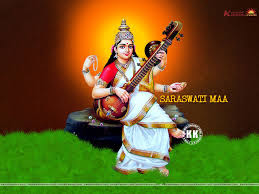Our Relationship with the Lord : -7.
Friday, Nov 29, 2013.
Vedantham :
Our Relationship with the Lord : -7.
Hanuman :-
Hanuman says, "O Lord, at moments when I am steeped in my body consciousness I am Thy slave; when I identify with the mind and intellect, i.e.; as a Jeevatma, I am the part of Thee; and when in my Svarupa, that is as the Spirit, I am Thyself."
Thus our relationship with the Lord can be explained in three different ways according to state of our Self-Consciousness.
There are moments when even the greatest Seer is conscious of the sorrows of physical pains and even of the inclemencies of the weather.
At such moments even a Jnani falls prostrate at His feet and mentally seeks the mercy of the Lord.
There are moments when he is conscious of some inner mental agitation or irresistible poetic outbursts or high intellectual flight and recognises within himself a might and a power almost equivalent to that of the Lord.
It is only in those rare moments of bliss and peace in "Samadhi", when he has completely retired from the false outer covering of the matter to the Subtlest of the Subtle Spirit within, that he recognises and cries forth "SIVOHAM" "SIVOHAM", "I AM THAT ":
"THE INDIVIDUAL AND THE LORD CONSTITUTE "ONE PERFECT WHOLE".
Next: Last part.
Continues...
Vedantham :
Our Relationship with the Lord : -7.
Hanuman :-
Hanuman says, "O Lord, at moments when I am steeped in my body consciousness I am Thy slave; when I identify with the mind and intellect, i.e.; as a Jeevatma, I am the part of Thee; and when in my Svarupa, that is as the Spirit, I am Thyself."
Thus our relationship with the Lord can be explained in three different ways according to state of our Self-Consciousness.
There are moments when even the greatest Seer is conscious of the sorrows of physical pains and even of the inclemencies of the weather.
At such moments even a Jnani falls prostrate at His feet and mentally seeks the mercy of the Lord.
There are moments when he is conscious of some inner mental agitation or irresistible poetic outbursts or high intellectual flight and recognises within himself a might and a power almost equivalent to that of the Lord.
It is only in those rare moments of bliss and peace in "Samadhi", when he has completely retired from the false outer covering of the matter to the Subtlest of the Subtle Spirit within, that he recognises and cries forth "SIVOHAM" "SIVOHAM", "I AM THAT ":
"THE INDIVIDUAL AND THE LORD CONSTITUTE "ONE PERFECT WHOLE".
Next: Last part.
Continues...




Comments